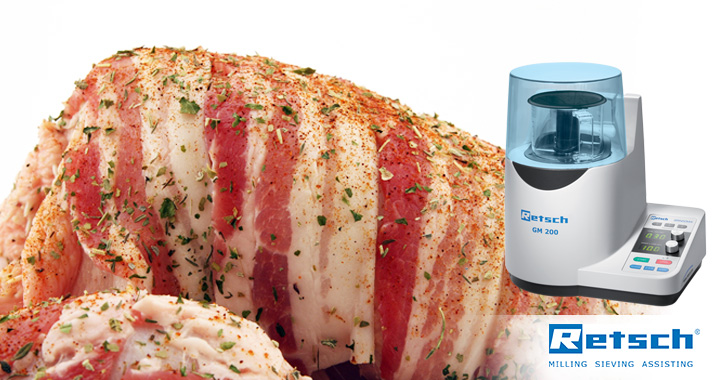Tough sample materials like fatty, inhomogeneous, streaky bacon pose quite a challenge to the homogenisation process prior to analysis.
The diversity of foodstuffs with their often very different product properties represents a real challenge for food testing laboratories.
Before the actual analysis, the sample materials – which can vary strongly with regards to hardness and moisture – need to be homogenized and reduced to a sufficiently small particle size.
Quality controls such as the determination of fat content of meat is important.
Tough sample materials like fatty, inhomogeneous, streaky bacon pose quite a challenge to the homogenization process prior to analysis.
Representative sample preparation is an essential step to obtain reliable analysis results. If larger parts of the rind or skin remain uncut, the sample is not homogeneous and the following analysis may yield false results.
Another important aspect of size reduction is the high water content of the sample. Knife mills have proven to be best suited for thoroughly homogenizing this type of sample.
RETSCH’s GRINDOMIX knife mills are the ideal tools to meet the complex requirements of the sample preparation of food.
The model GM 200 has proven itself for the homogenization of small sample volumes of up to 700 ml. For larger volumes RETSCH offers the GM 300 model with a grinding chamber volume of 5,000 ml.
The knife mills are equipped with a strong motor, to make use of the full cutting capacity of the blades for the size reduction process.
The new serrated blade knife is ideally suitable for homogenizing tough meat samples in a very short amount of time.
In addition, the short grinding times ensure low heat build-up.









